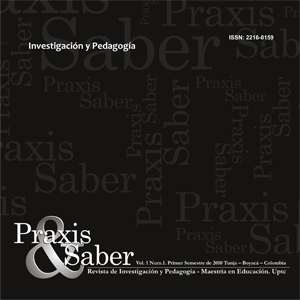Modernity and post-modena: Tensions and Implications for research in education

Abstract
In this article, the repercussion that debate about overcoming of modernity and assumption of postmodernist are discussed, they bring to education as knowledge field, in especially for research itself. The thesis that we live in postmodern era is discussed in critical way, giving emphasis to this affirmation in social though, mainly because that expression is comprehensible that do not have the force and the intensity of philosophical concept, and it will finish empties of sense. One of its first uses is highlighted in the field of the philosophy, it was done by Lyotard, it gave to itself as an adjective and not as a noun, which does a significant difference. Besides the debate on the end or not of the modernity, it is chosen for the notion of hypermodernity, proposed by Lipovetsky, as form of characterization of the contemporary world, it is seeking to understand its implications. On the other hand, the author recognizes the important contributions of the thesis which affirm the postmodern era mainly into its epistemological and political aspects, in the measure that the analysis data spread out the focus of analysis. the present debate is characterized as a tension between two images of the thought that are not absolutely new, but they acquire special relevancy in the contemporaneousness, defending that we must assume this tension, from that one that it presents of creative possibility that does not paralyze the thought.Keywords
Modernity, post modernity, education, research
References
- Deleuze, G. (2000). Diferença e Repetição. Lisboa: Relógio D’Água.
- Deleuze, G.; Guattari, F. (1980). Mille Plateaux: capitalisme et schizophrènie. Paris : Les Editions de Minuit.
- Deleuze, G.; Guattari, F. (1996). Micropolítica e Segmentaridade, in Mil Platôs – vol. 3. São Paulo: Ed. 34.
- Deleuze, G.; Guattari, F. (1976). O Anti-Édipo- capitalismo e esquizofrenia. Rio de Janeiro: Imago.
- Dicionário Eletrônico Houaiss Da Língua Portuguesa (2001). Versão 1.0. Rio de Janeiro: Ed. Objetiva.
- Feyerabend, P. (1989). Contra o Método. Rio de Janeiro: Francisco Alves, 3ª ed.
- Fogel, G. (2003). Conhecer é Criar – um ensaio a partir de F. Nietzsche. São Paulo/Ijuí: Discurso Editorial, GEN/Ed. UNIJUÍ.
- Foster, H. (comp.) (2002). La Posmodernidad. Barcelona: Kairós, 5ª ed.
- Foucault, M. (1999). Em Defesa da Sociedade. São Paulo: Martins Fontes.
- Guattari, F. (1985). Revolução Molecular – pulsações políticas do desejo. São Paulo: Brasiliense, 2ª ed.
- Habermas, J. (2002). O Discurso Filosófico da Modernidade. São Paulo: Martins Fontes, 1ª edição, 2ª tiragem.
- Lipovetsky, G. (2004). Os tempos hipermodernos. São Paulo: Barcarolla.
- Lyotard, J-F. (1986). O Pós-Moderno. Rio de Janeiro: José Olympio.
- Marques, A. (2003). A Filosofia Perspectivista de Nietzsche. São Paulo/Ijuí: Discurso Editorial, GEN/Ed. UNIJUÍ.
- Negri, A.; Hardt, M. (2001). Império. Rio de Janeiro: Record.
- Nietzsche, F. (1997). O Nascimento da Tragédia e Acerca da Verdade e da Mentira. Lisboa: Relógio D’Água.
- Nietzsche, F. (1998a). A Gaia Ciência. Lisboa: Relógio D’Água.
- Nietzsche, F. (1998b). Genealogia da Moral – uma polêmica. São Paulo: Cia. das Letras.
- Peters, M. (2000). Pós-estruturalismo e filosofia da diferença. Belo Horizonte: Autêntica.
- Vattimo, G. (1996). O Fim da Modernidade. São Paulo: Martins Fontes.
Downloads
Download data is not yet available.